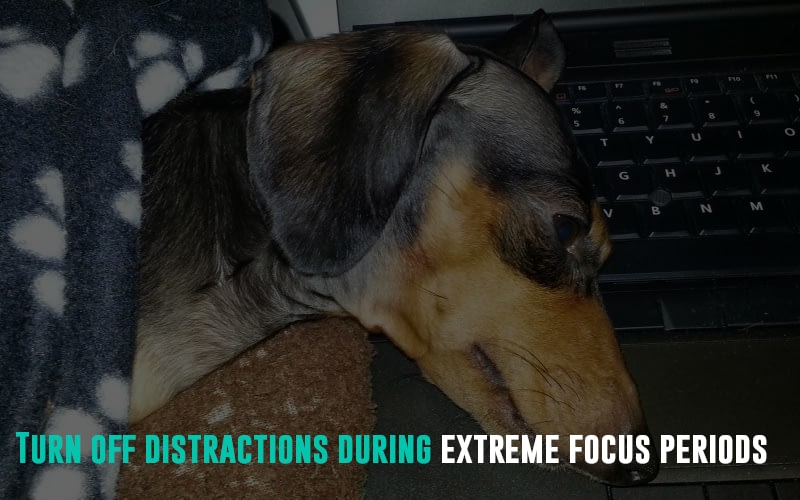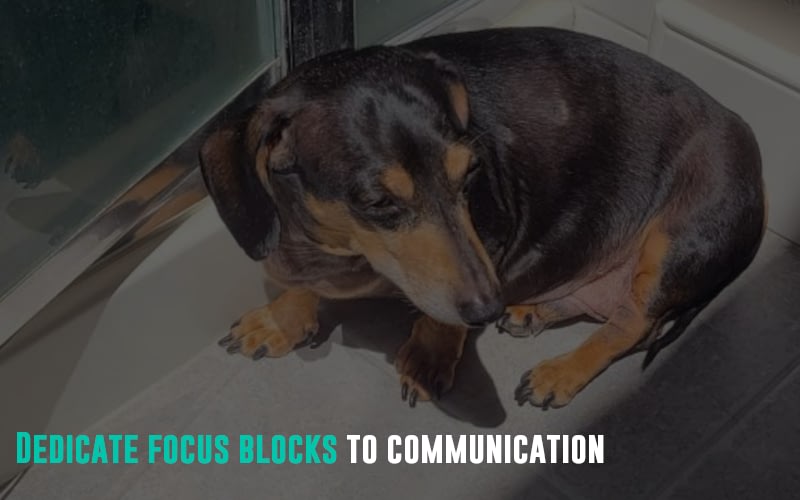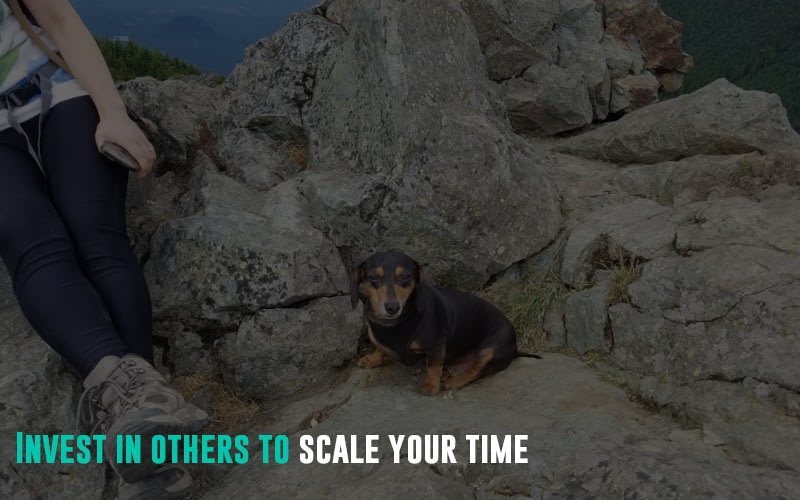Whether you are building your own business, contracting in the tech industry, or being an employee of a company, everyone is striving for increased productivity to meet their business goals with fewer hours or be able to drive more in their day. Without focus, you will find for every hour per hour worked, you will get significantly less work done. Let’s explore some of the focus tips I’ve learned over the years, as I greatly support working smarter and not harder. You can do more if you can achieve the same work in 2 hours as you can in 8 hours.
Featured Image Credit
Turn off distractions during extreme focus periods

Give yourself a limited time with a defined goal
You cannot push off communication, working with others, or getting to other tasks forever. You must have defined periods of intense focus and then take a break to return to other daily duties. I’ve learned the handy Pomodoro technique that may help some with this. The spirit of Pomodoro is what is most important. That is a very focused period with an explicit goal to do your best to achieve. Whether you hit your goal or the timer runs out, you’ve hit the period you set for yourself. Respect that time and manage accordingly.
Dedicate focus blocks to communication

After your blocks of focused time, you must attend meetings, communicate with others, and do other non-individual work you must do. Schedule your focused blocks around these and set specific intervals to have these. Do your best to achieve as much as you can during these times to get caught up; once you hit your schedule for focused time, switch over and dive into your concentrated work. Respect that schedule!
Take breaks between extreme focus periods

No one can be a pure efficiency machine. You’ll eventually hit diminishing returns, and your overall capability will slow to a crawl. You’ll stare at your screen, wandering to the void before you know it! Take some breaks after you make your short sprints of focus. Don’t book your meetings and communication blocks so that you sit at your desk for 8 hours. Instead, get up and enjoy some fresh air. This downtime can help you refocus and develop new ideas to solve your ongoing issues.
Solve first, then backstep to a better solution
This goes with writing in general but also, particularly, for writing software. It would be best if you had the mindset of driving for results. With that, show no mercy with your goals. Suppose you aim to figure out how to solve a bug or implement a new feature. Do it quickly, even if it feels like a dirty hack, or whatever it takes to make some progress on your goal. Once you have a quick and dirty hack or solution, dedicate another focus block to improve it and continue to devote more focus blocks until it is where it needs to be. Everything else tends to snap into place once an issue’s base is solved.
Limit meetings, communication, and helping others to defined times
This might be 10% of your day, and it might be 50% for others. There is no hard and fast rule, but I advise you to consider the right ratio and limit your time communicating with others via email, messaging, or meetings. Make this a goal and protect your time accordingly. If you do not protect or enforce your need for this time, others will abuse it, and your focus will go down the drain.
Invest in others to scale your time

As one grows in their career, they cannot do it all. Everyone comes to you for help, but only one of you is there. Writing good documentation is one form of automation and investing in others, so you are not the only knowledge keeper. Become a leader and scale your time by teaching others everything you know, alleviating direct demand on your schedule, and allowing you to focus on bigger and better things.
Measure and challenge yourself to achieve more in extreme focus periods

Off to the races! Like all things, you will only improve if you try and practice what works and doesn’t work for you. So keep striving to increase productivity and use this to your advantage. Whether you want to fit your 8-hour workday into 2 hours or be highly effective for 8 hours, these tips will help you improve.
Did you know Travel-Wise is a free trip-planning tool to help you make your next trip plans a breeze?

